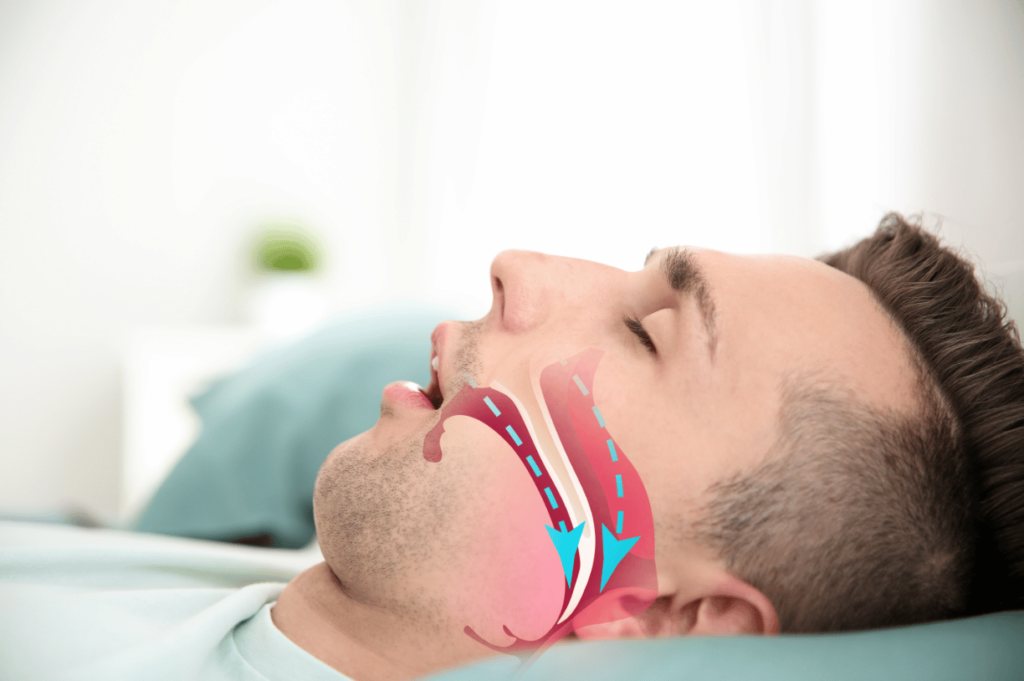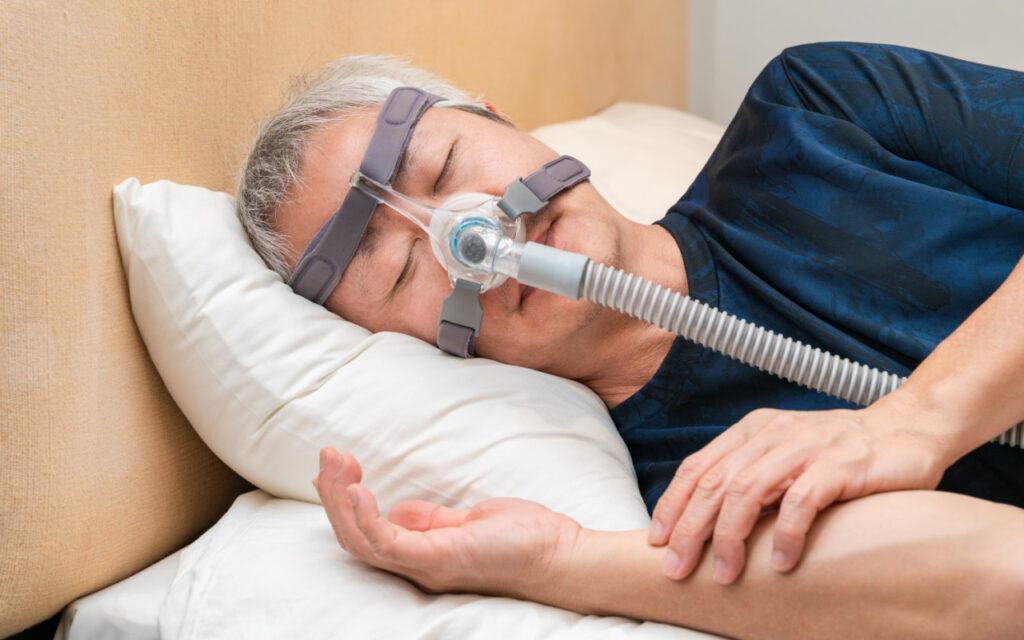Sleep apnea is a common and potentially serious sleep disorder. It can be mild, moderate, or severe. And is divided into two categories: obstructive sleep apnea (OSA) and central sleep apnea (CSA). OSA is caused by a blockage of the airway and CSA is caused by the brain not sending signals to the breathing muscles.
People with sleep apnea often experience pauses in breathing and can wake up hundreds of times per night. Daytime sleepiness is a common symptom. To treat sleep apnea, a sleep specialist may recommend continuous positive airway pressure (CPAP) or other treatments. A sleep study may be required to diagnose and determine the severity of the disorder.
What is sleep apnea?
Sleep Apnea Solutions is a sleep disorder that affects many people. It is characterized by pauses in breathing and gasping or snoring during sleep. Most people with this disorder are unaware of the symptoms. Unfortunately, this is not the case when it comes to Sleep Apnea. It can be categorized into three types: Obstructive Sleep Apnea (OSA), Central Sleep Apnea (CSA), and Complex Sleep Apnea Syndrome (CompSAS). Severe OSA can be treated by Continuous Positive Airway Pressure (CPAP). Moderate OSA can be treated with lifestyle modifications. A sleep specialist may also recommend a sleep study to diagnose and treat Sleep Apnea. Daytime sleepiness is one of the most common symptoms of OSA and mild Sleep Apnea.
Mild obstructive sleep apnea
Mild obstructive sleep apnea is a sleep disorder that occurs when someone temporarily stops breathing during sleep. People who develop sleep apnea often have loud snoring and experience pauses in breathing during sleep. Risk factors for sleep apnea include being overweight and having high blood pressure. Plus, having a narrowed airway. If left untreated, sleep apnea can lead to serious health problems. These problems include cardiovascular disease, diabetes, glaucoma, and even an increased risk of death.

Additionally, if someone falls asleep during the day due to fatigue caused by the disorder, they may be a threat to themselves or those around them. Treatment of sleep apnea typically involves the use of a positive airway pressure device. This keeps air pressure in the throat higher so that the airway does not collapse when the patient falls asleep. Treatment of emergent central sleep apnea may require additional treatments. Diagnosing and treating sleep apnea can help prevent health problems and other risks associated with the disorder.
Sleep is essential for good health
Sleep is essential for good health. Obstructive Sleep Apnea (OSA) can cause a decrease in blood oxygen levels and high blood pressure. It is treated with oral appliances, sleeping pills, and clinical sleep medicine. Nonalcoholic fatty liver disease and other chronic lung diseases can also increase the risk of sleep apnea. How is sleep apnea prevented? Losing weight, avoiding alcohol, and using bilevel-positive airway pressure are all ways to reduce the risk of sleep apnea. Symptoms of sleep apnea include daytime fatigue and difficulty falling asleep.

A recent large meta-analysis of 42,099 adults found something shocking. It found that those with sleep apnea had a twofold increased risk of sudden death from any cause. Plus, higher risk of death from heart disease, compared with those without sleep apnea.
Health Problems That Can Happen When Sleep Apnea Goes Untreated or Mismanaged
Sleep is important for good health and when sleep apnea happens, it can disrupt healthy sleep. Obstructive sleep apnea (OSA) is when the upper airway collapses during sleep. This results in pauses in breathing and drops in oxygen levels in the blood. This triggers the body’s fight-or-flight stress response. And raises the heart rate and blood pressure which wakes the person up. Sleep apnea depends on several factors including age, gender, and weight.
Losing weight and using oral appliances or bilevel-positive airway pressure (BPAP) may help to prevent sleep apnea. Central sleep apnea (CSA) is a different type of sleep apnea and is linked to chronic lung diseases and nonalcoholic fatty liver disease. Daytime fatigue and difficulty falling or staying asleep are common symptoms. Clinical sleep medicine and sleeping pills could help people with sleep apnea to get a better night’s rest.
Sleep apnea is a condition where the airway is narrowed and breathing is interrupted during sleep. People with sleep apnea often snore loudly and have difficulty concentrating restless sleep, and have trouble with weight loss.
Oral appliances, other airway pressure devices, and exercises to strengthen the throat muscles may be used to treat sleep apnea. Other complications have been linked to sleep apnea. They include asthma, metabolic syndrome, and other sleep disorders. It is unclear whether having sleep apnea puts someone at increased risk for these conditions or if the underlying condition causes sleep apnea.

Weight loss, normal sleep, and airway pressure devices may help to reduce the risk of emergent central sleep apnea and atrial fibrillation, which is a type of central apnea. Exercise to strengthen the upper airway muscles may also help to improve breathing and oxygen levels, as well as the soft palate.
Regardless of the causes, the list of health conditions you should be aware of that can be related to sleep apnea include the:
- Metabolic Syndrome This cluster of risk factors, including high blood pressure, abnormal cholesterol levels, elevated blood sugar, and excess body fat, which increase your risk for heart disease and diabetes, can be related to sleep apnea.
- Heart Disease Atrial fibrillation, heart attack, and heart failure are associated with sleep apnea.
- High Blood Pressure
- Stroke
- Type 2 Diabetes
Cognitive and Mental Health Complications Linked to Undiagnosed Sleep Apnea
Sleep apnea is a sleep disorder that can be divided into two types; obstructive sleep apnea (OSA) and central sleep apnea (CSA). People with sleep apnea can experience daytime sleepiness and other neurocognitive problems if their condition is left untreated. Treating sleep apnea with Continuous Positive Airway Pressure (CPAP) can have a positive effect on mood and can reduce the severity of symptoms. Mild sleep apnea may not require treatment, but for moderate and severe sleep apnea a sleep specialist can help diagnose and recommend a course of treatment. Because sleep apnea chronically prevents you from having normal, restorative sleep, it can lead to problems, such as:
- Daytime sleepiness and fatigue
- Attention problems
- Inability to concentrate
- Problems with memory
- Irritability
- Depression
- Decreased sex drive
- Poor school performance (in children with sleep apnea)
Sleep apnea, including obstructive and central varieties, is a serious sleep disorder. It can cause physical, cognitive, and psychological damage if left untreated. People with the condition may snore or make gasping noises, which can disturb their partner’s sleep and affect the relationship.
Treating sleep apnea with continuous positive airway pressure (CPAP) or other methods can help prevent long-term harm, even death. A sleep specialist can diagnose and recommend the best treatment for mild, moderate, or severe obstructive sleep apnea, central sleep apnea, or obstructive sleep apnea syndrome. A sleep study may be needed to make an accurate diagnosis. Identifying and treating the condition can help reduce daytime sleepiness.
Why Sleep Apnea Is an Underestimated Public Danger
Sleep apnea is a sleep disorder that can pose complications to one’s health and well-being, as well as public safety. If left untreated, it can cause daytime fatigue and unintentional falling asleep. This could lead to workplace accidents or motor vehicle crashes. CPAP, Continuous Positive Airway Pressure, is the usual treatment for severe OSA (Obstructive Sleep Apnea). But mild and moderate OSA can be treated with lifestyle changes. A sleep specialist can tell which type of sleep apnea you suffer from. He can advise you on how best to treat it. People with sleep apnea should be aware of the risks associated with the disorder.

